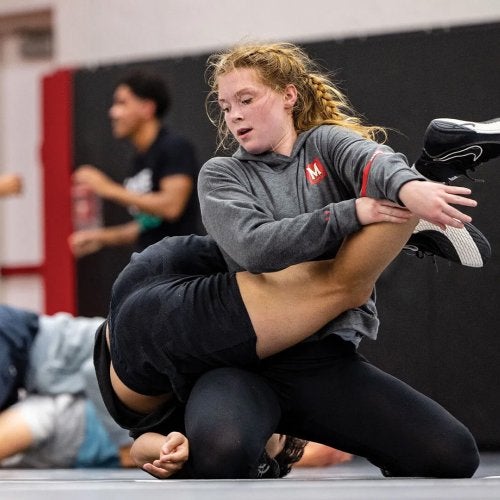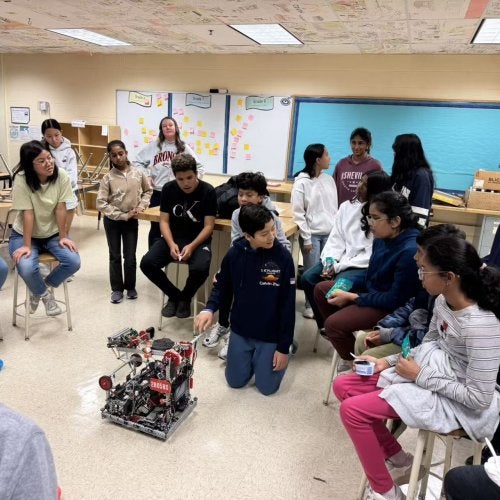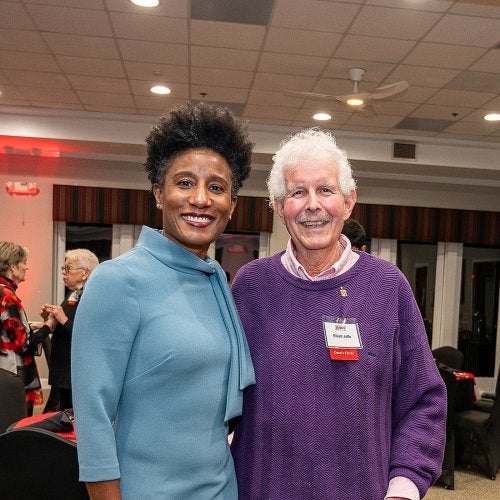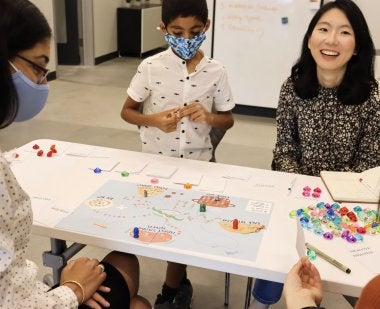
Three years ago, school psychology doctoral students Xinyi Zhang and Mazneen Havewala Ph.D. ’24 were driving back from an event when Havewala opened up about the challenges her eight-year-old son Kayezad was facing in school.
“She said her son asked her to bring sandwiches [for lunch] for the rest of the school year,” recalled Zhang, “because he brought Indian food, and he was made fun of by his friends.”
Although Havewala and Zhang wanted Kayezad to stand up for himself, they understood that he felt pressure to fit in and that his friends’ teasing was not coming from a place of malice but from a lack of understanding.
Zhang and Havewala wanted to come up with a way for children to have discussions surrounding cultural differences and bridge cultural divides in a safe learning environment. With the help of their fellow classmate, Ph.D student Amber Pasha M.A. ’23, and support from Associate Professor Richard Shin in their “Multicultural Issues in Counseling and Personnel Services” course (EDCP612), the team was able to create a colorful adventure board game for late elementary and middle school students to help facilitate these kinds of conversations.
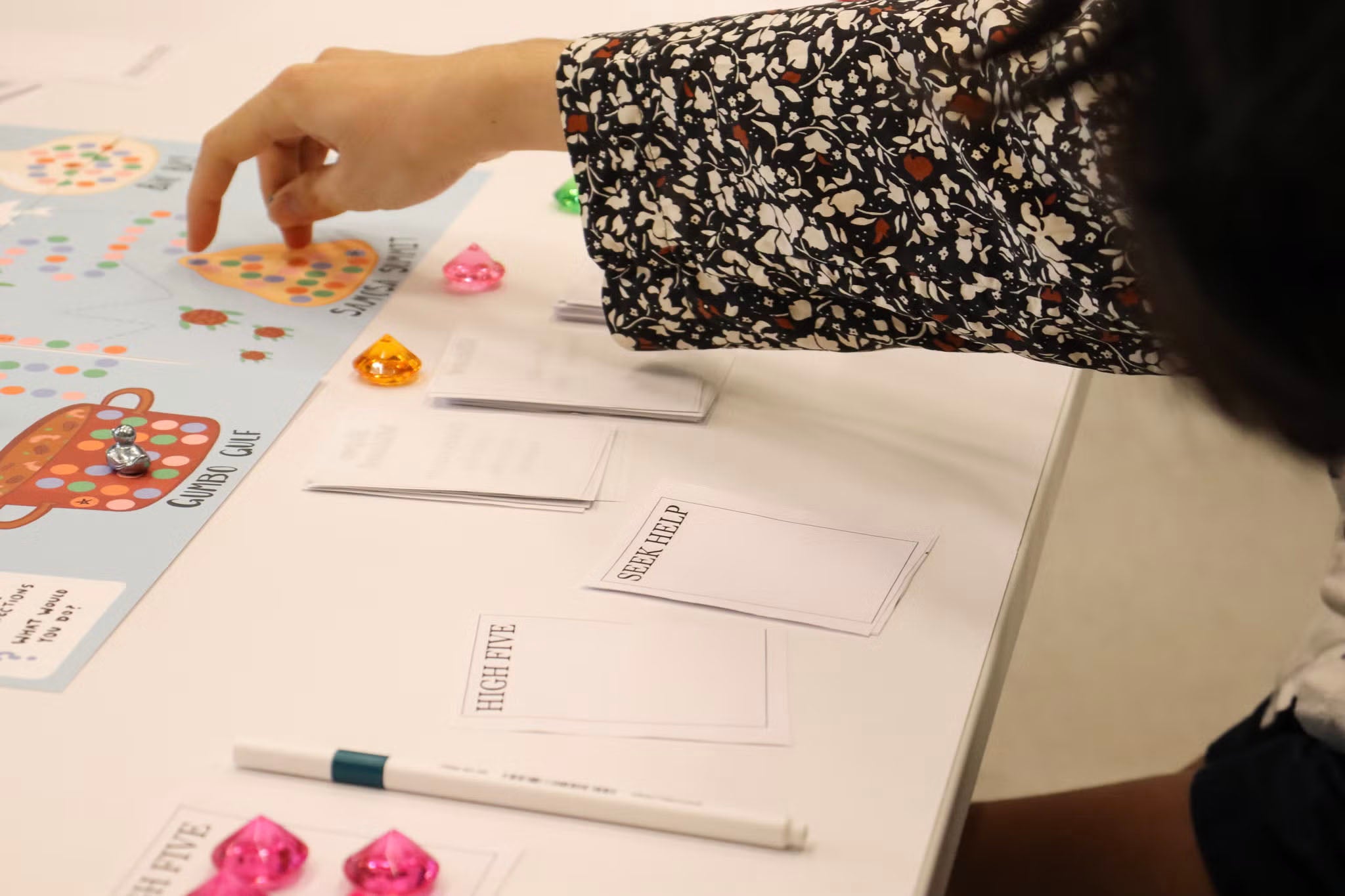
In Sea My Culture, players progress through the game by answering questions on a given card. For example, one card might ask students to share their favorite food from a certain region, while another might ask players to suggest how to assist a fellow student who is being bullied. The game begins with players starting at one of five cuisine-themed islands: Taco Terrain, Roasted Salmon River, Bao Bay, Samosa Summit, and Gumbo Gulf. As players move around the board, they explore different cultural questions and collect gems for a chance to defeat a sea monster. On this quest, players simultaneously participate in enriching conversations about identity, culture and different types of “isms,” such as racism, sexism, sizeism and ableism.
“We had to integrate fun and learning,” said Zhang. “We thought, let’s make it a game so they have [a] feeling of play.”
Sea My Culture has undergone multiple iterations, with each revision focusing on incorporating important insights from faculty, school teachers, counselors and children. Today, the game has been played more than 800 times in multiple classrooms and international conferences including last year at European Conference on Games Based Learning hosted at Aarhus University in Denmark, and Symposium on Gifted Education hosted at Harvard University in Boston. For two years, on National Social Emotional Learning Day, more than 200 middle school students at College Park Academy played Sea My Culture and enjoyed learning about each other in a fun and interactive way. Sea My Culture has also won several awards including second place at the DMV University Entrepreneurship Day Pitch Competition in 2024 and Cohort’s Choice Award on Terp Startup Accelerator Demo Day in 2024, as well as a mini-grant from the UMD School of Public Policy’s Do Good Institute in 2023. The game is currently in the process of gaining widespread distribution.
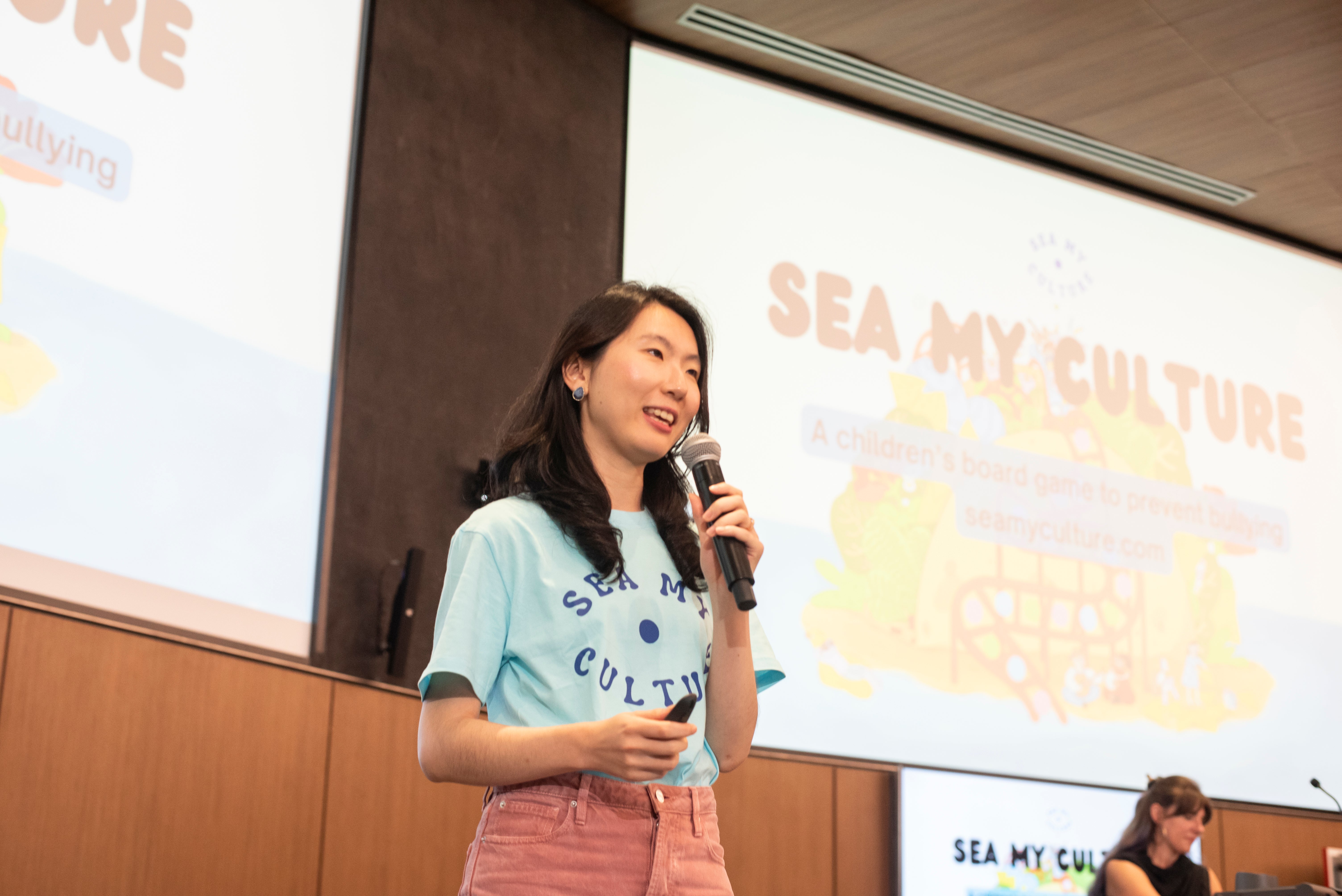
Although there are many contemporary debates regarding how and whether adults should address race and identity in the classroom, Zhang asserted that the board game is a tool to navigate ideas and questions that children are already confronting at school and in their daily lives. Psychological research has shown that children start to form ideas, attitudes and biases about cultural differences as young as kindergarten, she explained.
“The question is, how do we create an inclusive environment so that children can safely explore their ethnic racial identity, have these multicultural conversations and learn from each other's backgrounds?” said Zhang.
Watch: Xinyi Zhang demonstrates Sea My Culture.
Top photo: Xinyi Zhang (right) and co-creators Amber Pasha and Mazneen Havewala play an early prototype of Sea My Culture with Havewala's son Kayezad in July 2022.
